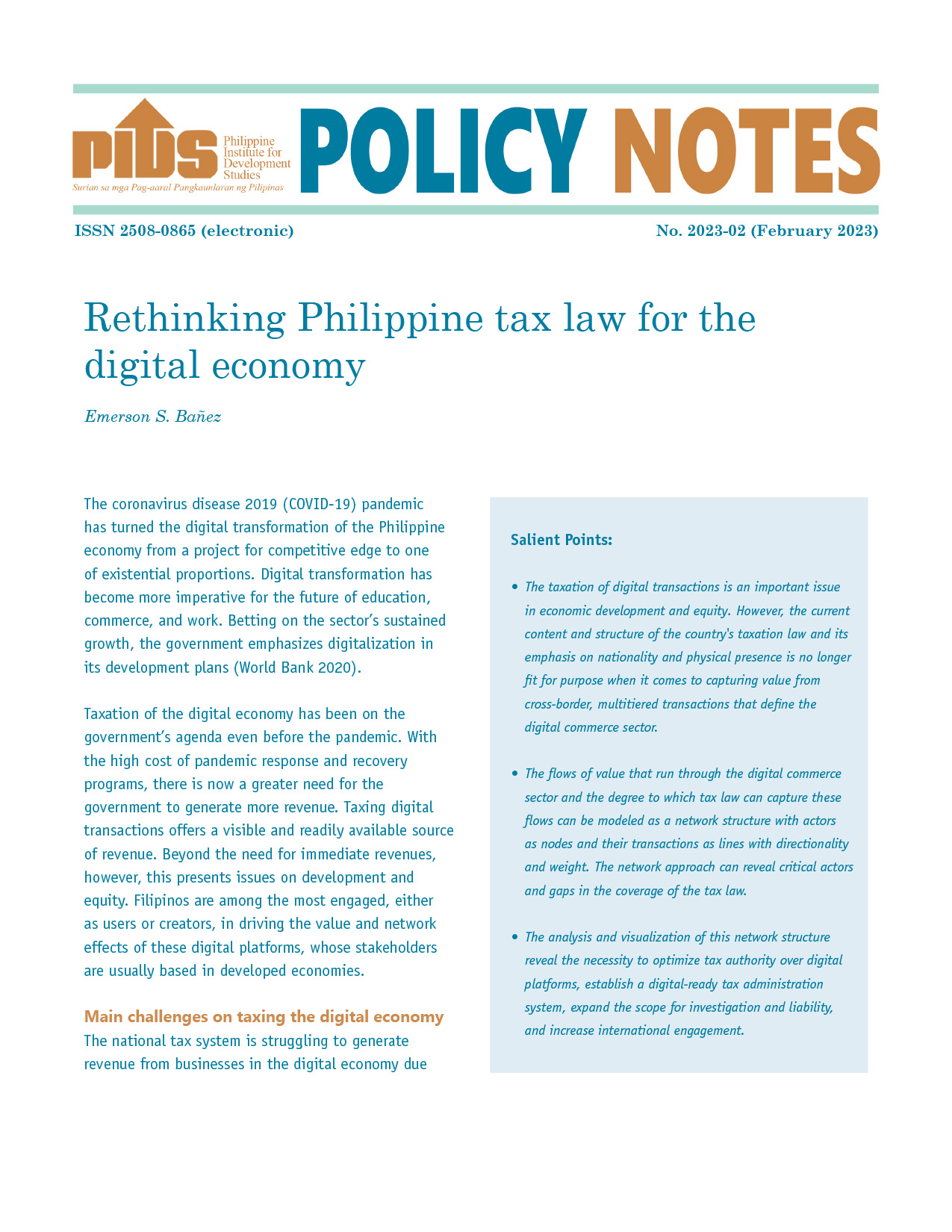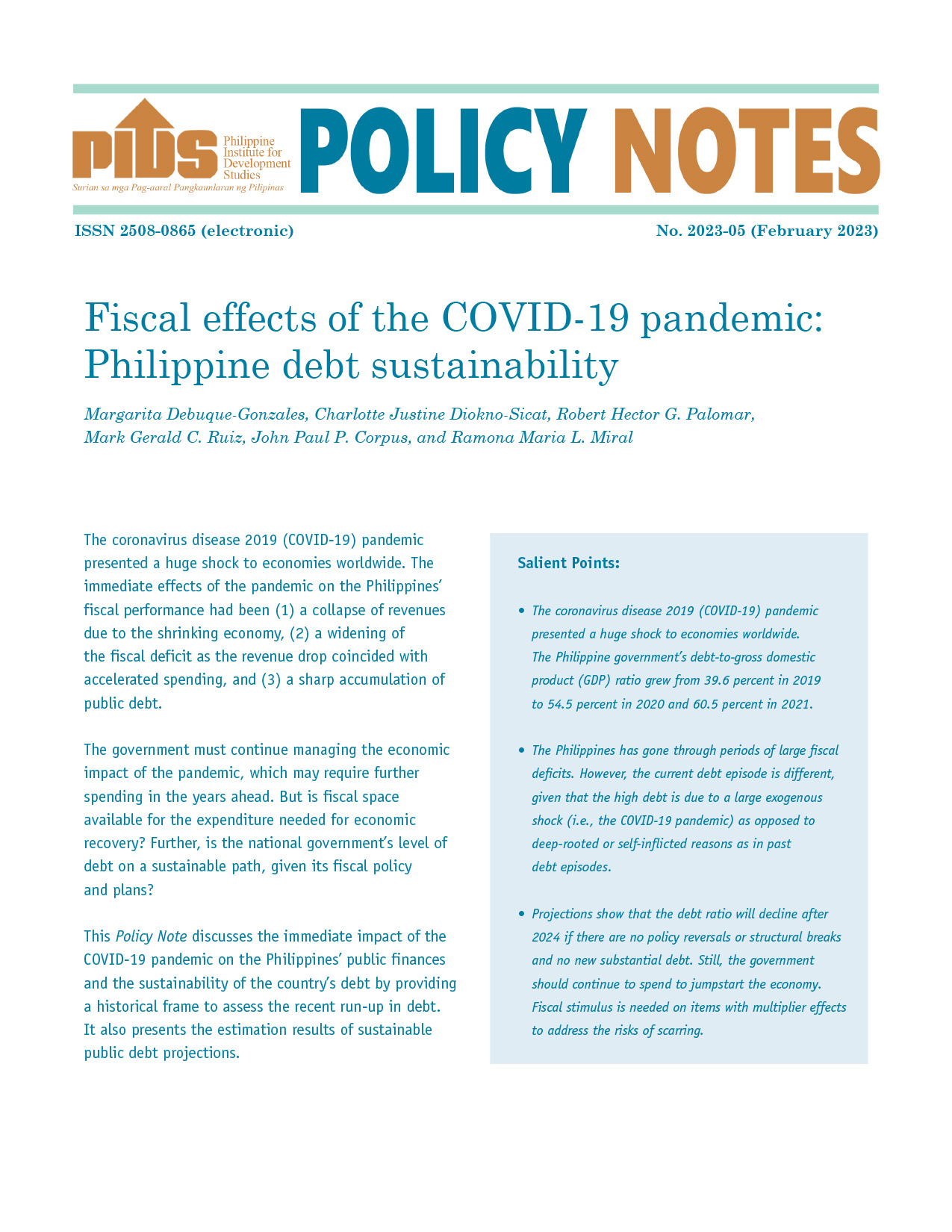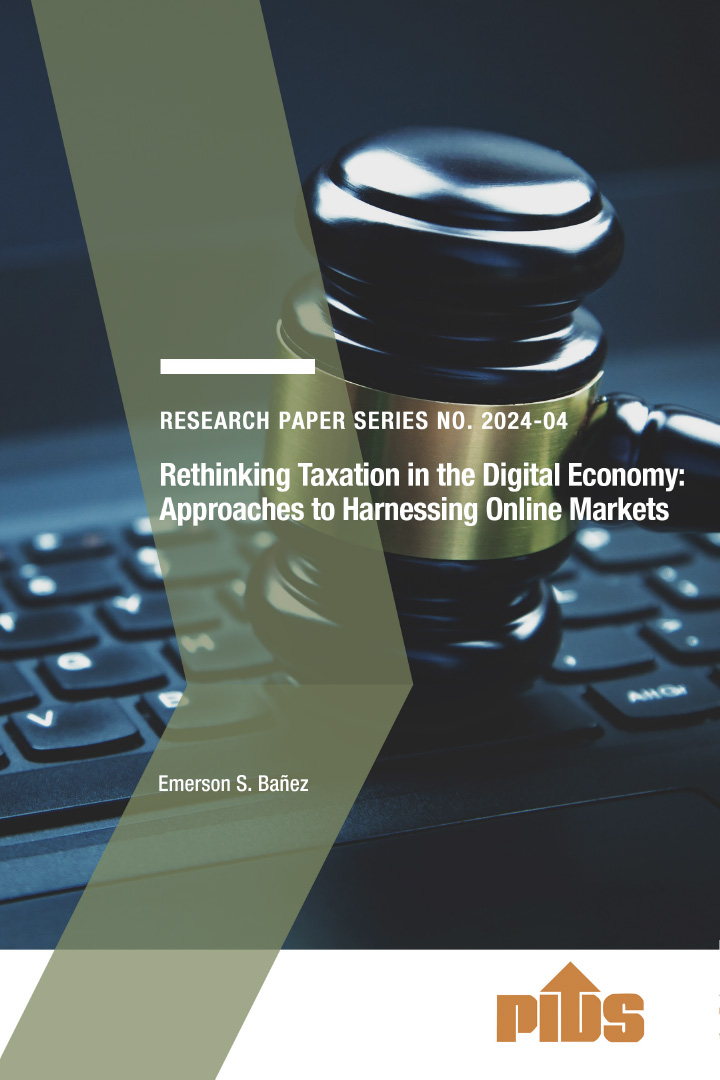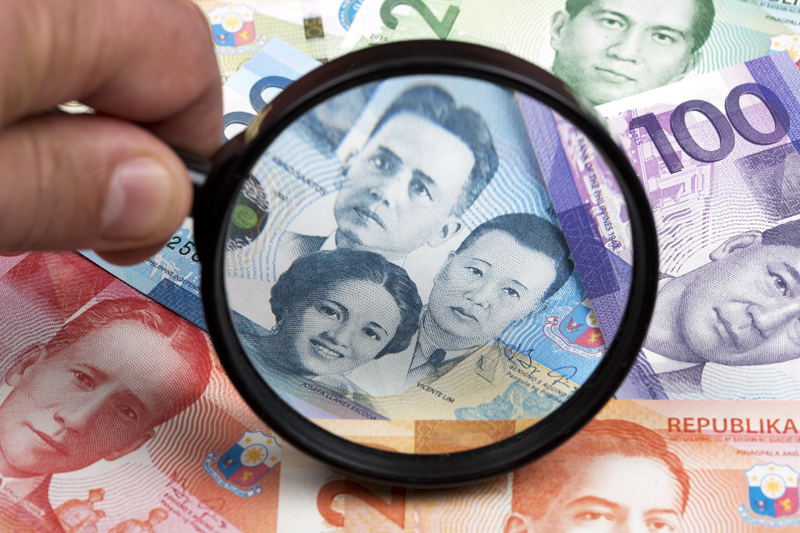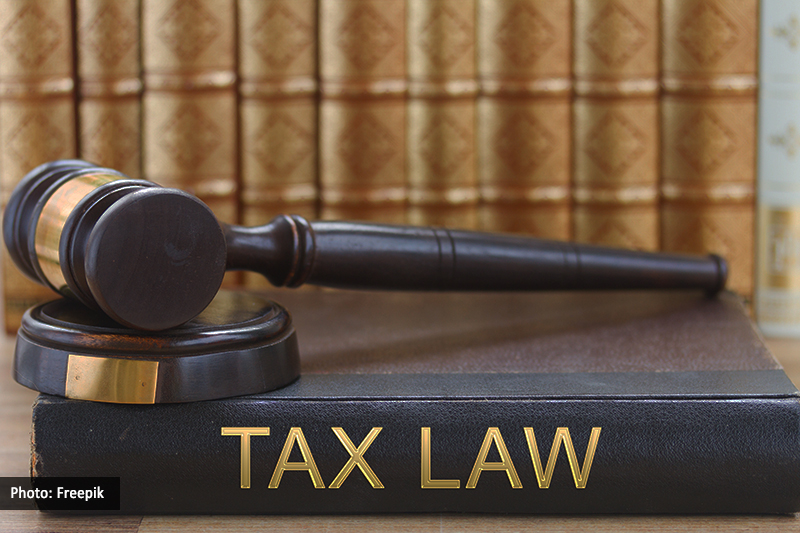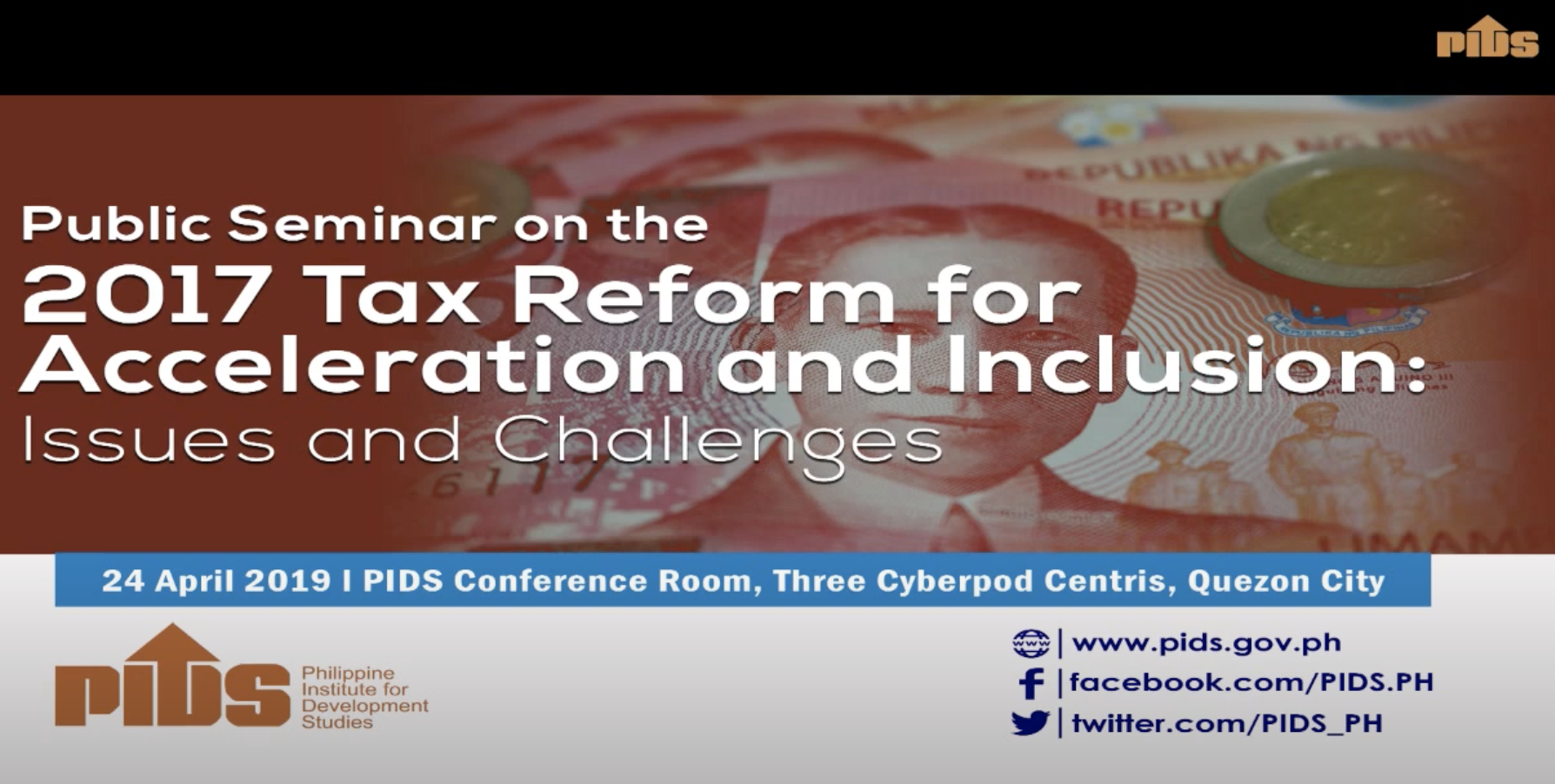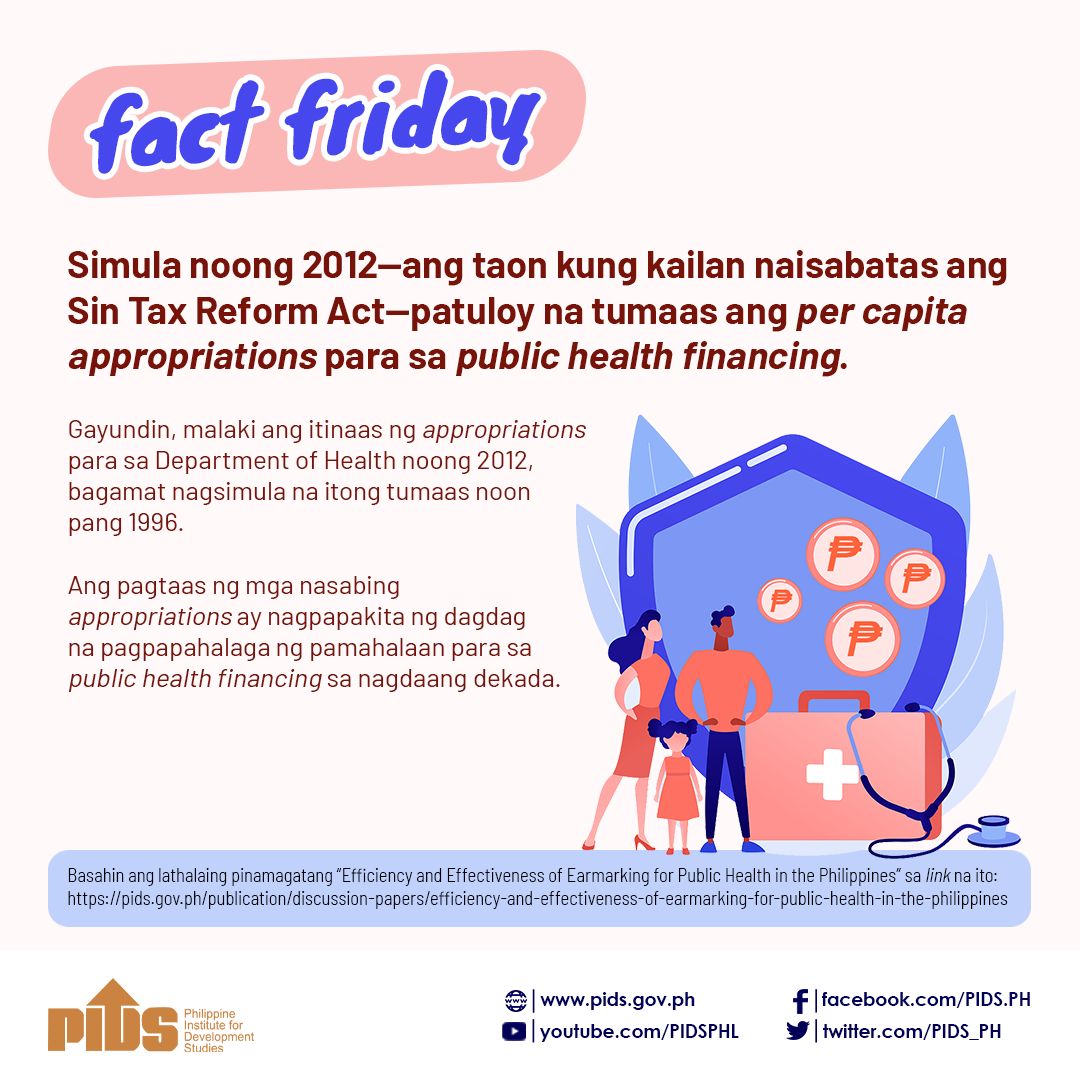MANILA, Philippines - The first package of the tax reform program which provides for the lowering of income tax and offsetting measures must be passed as a package to be more effective, said state-run think tank Philippine Institute for Development Studies (PIDS).
The policy research institute, however, recommends a further review of some of the components such as the time period for the provision of the unconditional cash transfers to low income and indigent households that will be affected by the offsetting measures in the form of higher taxes on fuel, new cars and sugary products.
PIDS research fellow Rosario Manasan, who specializes in public finance, said despite the lowering of income taxes, the first package also known as the Tax Reform for Acceleration and Inclusion Act (TRAIN) increases the likelihood that it will bring in more revenues for the government as it will increase the purchasing power of households.
The House of Representatives has already approved its version of the TRAIN—House Bill 5636—in June. The Senate Ways and Means Committee is deliberating on the House bill as well as Senate Bill 1408, the version of the tax reform package filed by Senate President Koko Pimentel.
Manasan said it is important to pass the first package as a whole so as not to repeat the failed tax reform exercise in 1977 that resulted in negative impacts on revenues.
“I think the good thing about the proposed tax reform of the DOF is that it comes in a package. Way back in 1977, we already had a comprehensive tax reform program and comprehensive studies were done about it. But when brought to Congress, it was passed in piecemeal which resulted to the passing of measures with negative impacts on revenues. The other measures which could have brought positive effects on revenues were not approved because they are not popular,” she said.
TRAIN lowers the personal income tax (PIT) of regular wage earners from the current 32 percent to 25 percent which means those earning below P250,000 annually will be exempted from paying taxes.
The government wants to generate more revenue to finance its ambitious infrastructure development program.
“I think the main goal of the government in passing the new tax reform is to increase government revenues but the DOF wants to do it in a way that is fair, efficient, and easier to collect taxes,” Manasan said.
TRAIN, she said, would also fix bracket creep in personal income tax and resolve issues on overtaxing wage earners.
“The proposed tax reform package will cure bracket creep in the present system. The income tax brackets have been there for the longest time and have never been adjusted. It was in 1997 when the PIT, which we are using now, has been passed into law,” she said.
The policy research institute, however, recommends a further review of some of the components such as the time period for the provision of the unconditional cash transfers to low income and indigent households that will be affected by the offsetting measures in the form of higher taxes on fuel, new cars and sugary products.
PIDS research fellow Rosario Manasan, who specializes in public finance, said despite the lowering of income taxes, the first package also known as the Tax Reform for Acceleration and Inclusion Act (TRAIN) increases the likelihood that it will bring in more revenues for the government as it will increase the purchasing power of households.
The House of Representatives has already approved its version of the TRAIN—House Bill 5636—in June. The Senate Ways and Means Committee is deliberating on the House bill as well as Senate Bill 1408, the version of the tax reform package filed by Senate President Koko Pimentel.
Manasan said it is important to pass the first package as a whole so as not to repeat the failed tax reform exercise in 1977 that resulted in negative impacts on revenues.
“I think the good thing about the proposed tax reform of the DOF is that it comes in a package. Way back in 1977, we already had a comprehensive tax reform program and comprehensive studies were done about it. But when brought to Congress, it was passed in piecemeal which resulted to the passing of measures with negative impacts on revenues. The other measures which could have brought positive effects on revenues were not approved because they are not popular,” she said.
TRAIN lowers the personal income tax (PIT) of regular wage earners from the current 32 percent to 25 percent which means those earning below P250,000 annually will be exempted from paying taxes.
The government wants to generate more revenue to finance its ambitious infrastructure development program.
“I think the main goal of the government in passing the new tax reform is to increase government revenues but the DOF wants to do it in a way that is fair, efficient, and easier to collect taxes,” Manasan said.
TRAIN, she said, would also fix bracket creep in personal income tax and resolve issues on overtaxing wage earners.
“The proposed tax reform package will cure bracket creep in the present system. The income tax brackets have been there for the longest time and have never been adjusted. It was in 1997 when the PIT, which we are using now, has been passed into law,” she said.

